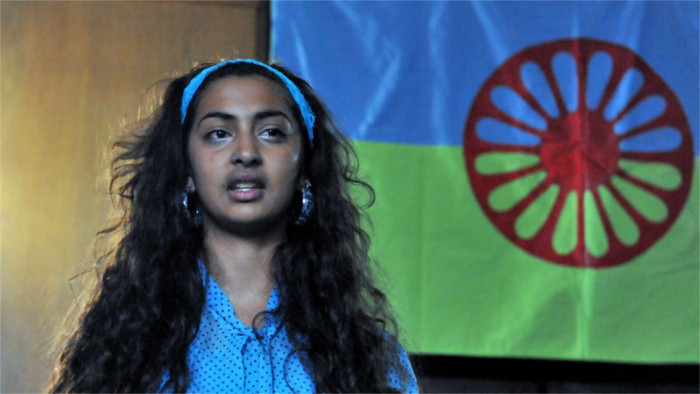On Saturday, 8 April, we commemorated International Roma Day, which is a special reminder of the Roma's struggle for self-determination and recognition as a national minority. Fifty-two years ago, on 8 April 1971, Roma representatives from around the world met in Orpington, UK, for a congress that was one of the most important in the history of the Roma nation. Together, they agreed on a Roma flag and adopted the Roma anthem. President Zuzana Čaputová believes that Slovakia is a safe home for Roma. She wants it to be a place where they can live in equality and where they are judged by their actions, not by their origin or the colour of their skin. The President says that in her travels across Slovakia she meets creative and dedicated people who, as field or community workers, health assistants, volunteers, teachers, mayors or people from the third or corporate sector, are working hard to bring about the change that is needed. "They are often a quieter but all the more empathetic force of humanity that needs far more support from the state and from people of goodwill. To have the upper hand against discrimination, hatred and exclusion, which are hurtful and harmful to us all," she concluded.
The Office of the Government Plenipotentiary for Roma Communities pointed out that although several decades have passed since the first World Roma Congress, even in 2023 Roma communities are still living without water, access roads and basic infrastructure. Michal Šľachta from the Office of the Office noted that they also continue to face prejudice, discrimination and marginalisation. This prevents them from participating fully in political, social and economic life, not only in Slovakia, but throughout the world. "Roma can assert themselves in any field. What many lack is the opportunity and conditions to work on themselves. However, the responsibility lies not only on the shoulders of state authorities and municipalities, but on all of us," said Ján Hero, the Government Plenipotentiary for Roma Communities. He added that only with a commitment to work hand in hand can we build communities that stand up to hatred, treat each other with dignity and use every opportunity to spread tolerance. Hero calls on all to show mutual respect and kindness.
The Roma nationality is declared by 156,164 inhabitants of Slovakia, which represents almost three percent of the Slovak population. The largest number of Roma, 65,161, live in the Prešov region. The smallest number of people of Roma nationality, 1,135, is registered in the Trenčín Region. TASR was informed about this by the spokesperson for the Census of Population, Houses and Flats (SODB) 2021, Jasmína Stauder. "The census form included two questions on nationality, in addition to the nationality, the resident could also indicate his/her other nationality. In the Slovak Republic, 67,179 residents declared their Roma nationality. 88,985 residents indicated Roma nationality as their other nationality," the spokesperson said. Of the total population of 156,164, 78,902 are men (50.5 percent) and 77,262 are women (49.5 percent). The Roma mother tongue in the Slovak Republic is spoken by 100,526 inhabitants, which represents 1.8 percent of the entire population. "In total, there are 78,298 inhabitants of Roma nationality who also declared their Roma mother tongue in the SODB 2021, which represents 50.1 percent of the population of Roma nationality." There are 95,903 people of Roma nationality (61.4 percent) in the working age group (15 to 64 years old). In the post-working age (65 and over) there are 4,696 residents of Roma nationality, which is three percent. In the entire Slovak Republic, 17.1 percent of the population is of post-reproductive age. The adult age is 90,454 people of Roma nationality, of whom 42,235 (46.7 percent) are married.
Source: TASR

